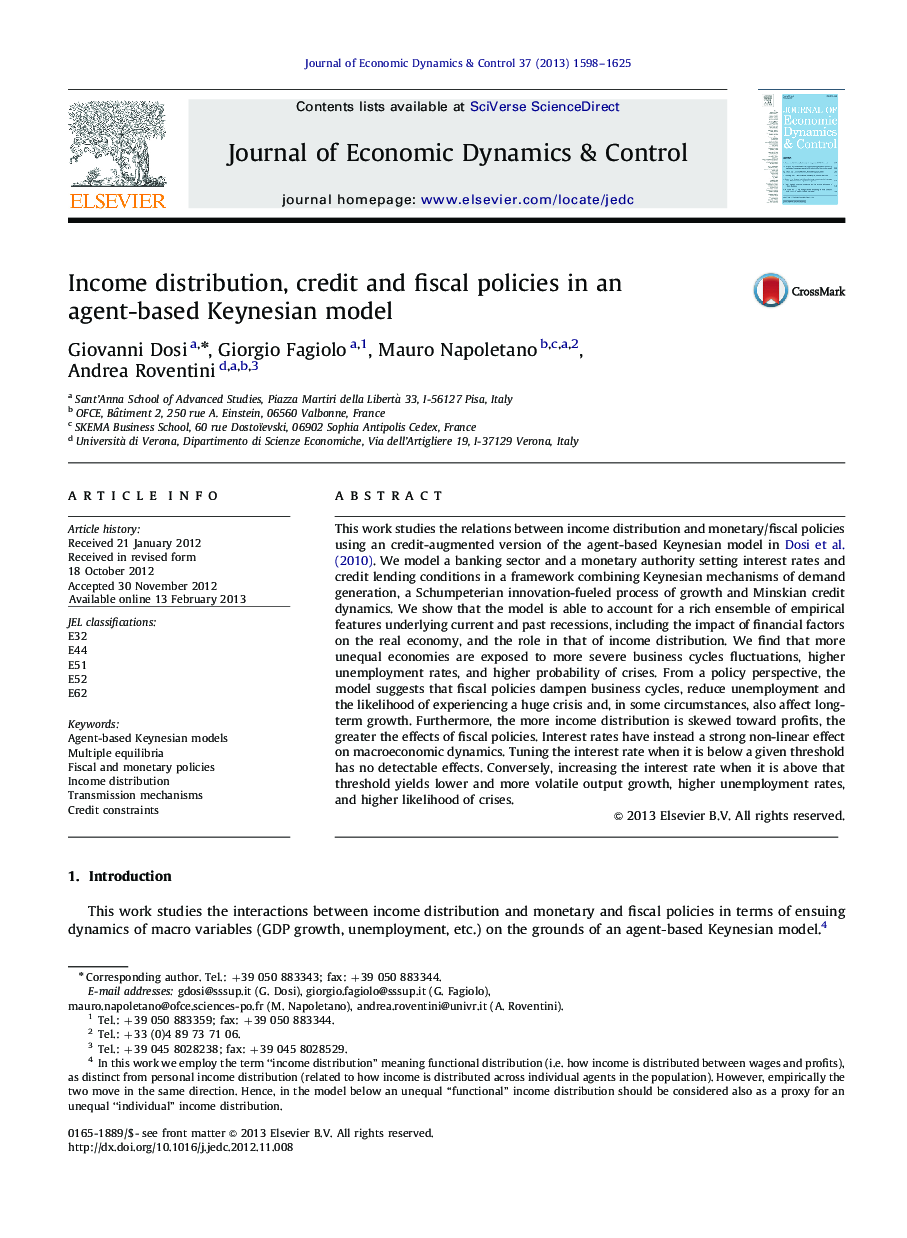| کد مقاله | کد نشریه | سال انتشار | مقاله انگلیسی | نسخه تمام متن |
|---|---|---|---|---|
| 5098800 | 1376960 | 2013 | 28 صفحه PDF | دانلود رایگان |
عنوان انگلیسی مقاله ISI
Income distribution, credit and fiscal policies in an agent-based Keynesian model
ترجمه فارسی عنوان
توزیع درآمد، اعتبار و سیاست های مالی در یک مدل مبتنی بر عامل کینزی
دانلود مقاله + سفارش ترجمه
دانلود مقاله ISI انگلیسی
رایگان برای ایرانیان
کلمات کلیدی
موضوعات مرتبط
مهندسی و علوم پایه
ریاضیات
کنترل و بهینه سازی
چکیده انگلیسی
This work studies the relations between income distribution and monetary/fiscal policies using an credit-augmented version of the agent-based Keynesian model in Dosi et al. (2010). We model a banking sector and a monetary authority setting interest rates and credit lending conditions in a framework combining Keynesian mechanisms of demand generation, a Schumpeterian innovation-fueled process of growth and Minskian credit dynamics. We show that the model is able to account for a rich ensemble of empirical features underlying current and past recessions, including the impact of financial factors on the real economy, and the role in that of income distribution. We find that more unequal economies are exposed to more severe business cycles fluctuations, higher unemployment rates, and higher probability of crises. From a policy perspective, the model suggests that fiscal policies dampen business cycles, reduce unemployment and the likelihood of experiencing a huge crisis and, in some circumstances, also affect long-term growth. Furthermore, the more income distribution is skewed toward profits, the greater the effects of fiscal policies. Interest rates have instead a strong non-linear effect on macroeconomic dynamics. Tuning the interest rate when it is below a given threshold has no detectable effects. Conversely, increasing the interest rate when it is above that threshold yields lower and more volatile output growth, higher unemployment rates, and higher likelihood of crises.
ناشر
Database: Elsevier - ScienceDirect (ساینس دایرکت)
Journal: Journal of Economic Dynamics and Control - Volume 37, Issue 8, August 2013, Pages 1598-1625
Journal: Journal of Economic Dynamics and Control - Volume 37, Issue 8, August 2013, Pages 1598-1625
نویسندگان
Giovanni Dosi, Giorgio Fagiolo, Mauro Napoletano, Andrea Roventini,
